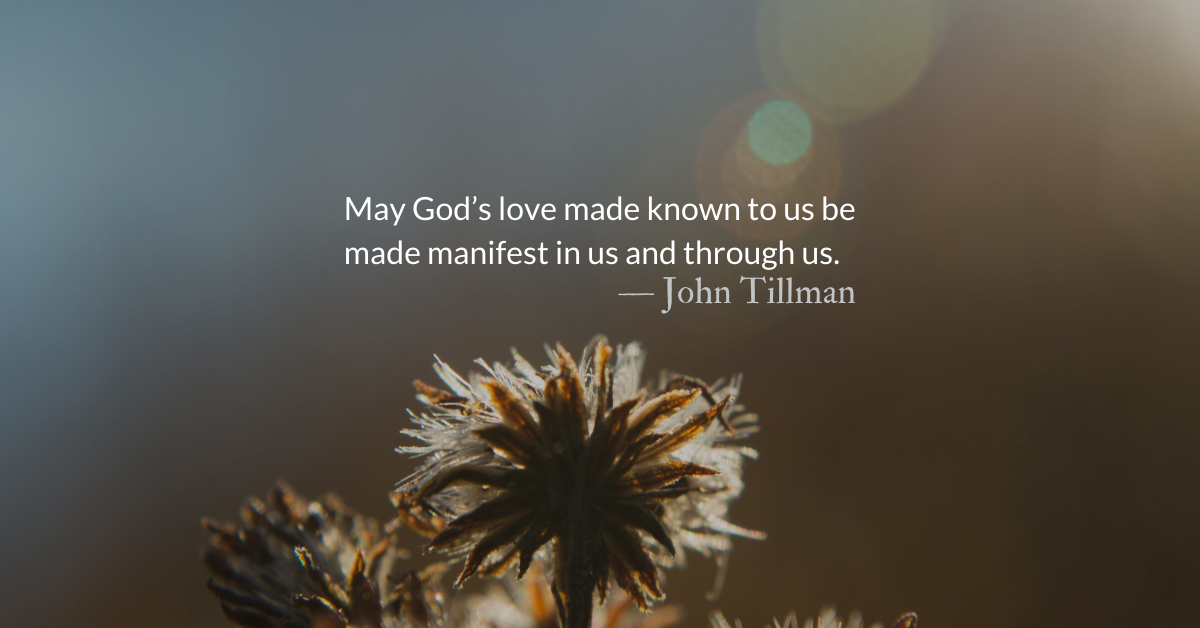Scripture Focus: Malachi 1.2
2 “I have loved you,” says the Lord.
“But you ask, ‘How have you loved us?’
Reflection: How He Loves Us—Epiphany
By John Tillman
It is notable that the word of the Lord from Malachi begins with a declaration of God’s love for Israel. God declares his love because he knows his people have doubts.
Malachi ministered about 100 years after the first exiles returned to Israel and about 430 years before the birth of Jesus. The temple had been rebuilt by Ezra. Jerusalem’s wall had been rebuilt by Nehemiah. But, after a brief period of exuberant celebration, the people’s dedication to God was still a crumbling mess.
Unlike the exodus from Egypt, the return from Babylon was not a sudden, dramatic exit. It was slower, political, methodical. God worked in the second exodus by softening, rather than hardening the hearts of kings. There were no plagues, no pillars of fire or cloud, no miraculous deliverance through the sea.
Israel was slowly learning again how to be the people of God. They had experienced generations of oppression and suffering caused by the sins of their fathers and mothers. Now, like the former Egyptian slaves in the desert, they doubted the love of God. They showed contempt for the sacrifices of God. They showed selfishness in both worship practices and social policy. Doubting God’s love, they showed little love for him in return and little love for the poor and needy around them.
We, too, have passed through many traumas this year. Our exodus from many of 2020’s traumas is incomplete. The COVID-19 vaccine has been called a “medical miracle,” but we still haven’t crossed the Red Sea, out of danger, much less the Jordan, into a land of promise. We languish in the in-between—in the desert of deferred hopes.
Malachi’s audience was about to enter a different kind of desert—a desert of silence. Malachi’s message would be the last prophetic message or vision until Gabriel appeared to Zechariah to announce the birth of John the Baptist, followed by the birth of Jesus.
Jesus is the ultimate declaration of God’s love and, in Christmastide and Epiphany, we celebrate this love’s manifestation. May God’s love made known to us be made manifest in us and through us.
As we exit this year, let us dispel our doubt of God’s love so that we may dispense the love of God to others.
Let us ensure ourselves of God’s generosity so that a spirit of generosity may inspire our giving of both tangible and intangible gifts.
Divine Hours Prayer: The Request for Presence
Set a watch before my mouth, O Lord, and guard the door of my lips; let not my heart incline to any evil thing.
Let me not be occupied in wickedness with evildoers, nor eat of their choice foods.
Let the righteous smite me in friendly rebuke; let not the oil of the unrighteous anoint my head. — Psalm 141.3-5
– Divine Hours prayers from The Divine Hours: Prayers for Autumn and Wintertime by Phyllis Tickle
Today’s Readings
Malachi 1 (Listen – 2:47)
John 18 (Listen – 5:16)
Read more about End of Year Giving and Supporting our work
If you have not donated this year (or ever), please prayerfully consider joining our donors, with either a one-time or monthly donation.
Read more about In a World of Trouble, Peace :: A Guided Prayer
As Advent moves into the twelve days of Christmas, we participate in the revealing, the epiphany, the manifestation of Christ.







